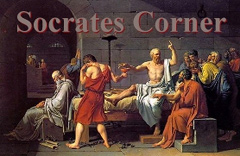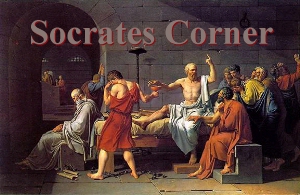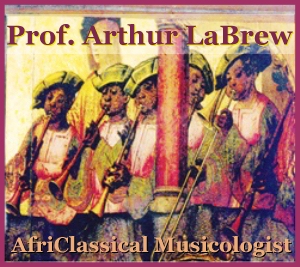On Apollonius, Nicomachus and first principles
Apollonius image of conic sections and the question of orbital motion
*N.B.: This essay is based in part on ideas from Great Books of the Western World, Robert Maynard Hutchins, Editor-in-Chief (1952), Vol. 3, chap. 70 – Principle and Vol. 11 – Apollonius of Perga and Nicomachus of Gerasa.
“All that has by nature with systematic method been arranged in the universe seems both in part and as a whole to have been determined and ordered in accordance with number… by the domination of number preexistent in the mind of the world-creating God…”
~ Nicomachus of Gerasa, Arithmetic I, Chap. VI
Prologue: Biography
Apollonius of Perga [Pergaeus] (c. 262 BC – c. 190 BC) was an ancient Greek geometer and astronomer renowned for his writings on conic sections. His pioneering methodology and vocabulary, particularly in the arena of conics, influenced numerous future scholars including Ptolemy, Francesco Maurolico, Johannes Kelper, Isaac Newton, and Rene Descartes. It was Apollonius who gave the terminology: ellipse, the parabola, and the hyperbola the designations used in modern times (see picture above). The hypothesis of orbital motion, eccentric orbits, or equivalently, deferent and epicycles, to describe the outward motion of the planets and the variable motion of the Moon, is likewise attributed to him. Apollonius’ theorem establishes that the two models are equal given the right parameters. Ptolemy defines this theorem in the Almagest XII.1. Apollonius also explored the lunar history, for which he is said to have been called Epsilon (ε). The crater Apollonius on the Moon is named in his honor.
Nicomachus (c. 60 – c. 120 AD) was an important mathematician in the ancient world and is most remembered for his opus Introduction to Arithmetic and Manual Harmonics in Greek. He was born in Gerasa, in the Roman province of Syria (now Jordan), and followed after the teachings of Aristotle and Pythagoras. He was a Neopythagorean, based on his tendency to view numbers as having mystical properties and he was a Pythagorean based on his work on music, harmonic, and ratio principles of numbers.
Historians believed he lived (c. 100 AD) because he cites Thrasyllus (d. 36 A.D.) in his Manual of Harmonics, and because his Introduction to Arithmetic was apparently translated into Latin in the mid-2nd century by Apuleius(c. 125 – c. 180 CE). His Manual of Harmonics was dedicated to an aristocratic lady who also invited Nicomachus to write the book, which suggests that he was an esteemed scholar of high regard and reputation. He states his resolve to write a more innovative work, but has little time due to his constant travelling schedule.
Apollonius, Nicomachus: Why First Principles are critical to preserving God, certainty while combating relativism, uncertainty
Concepts, as separate from sense-perceptions are also occasionally considered as principles of knowledge by persons who consider that concepts are created by abstraction from sensory provisions, besides by those who think that ideas are “first principles,” i.e., having no origin in any prior idea. On either opinion, ideas or concepts function as principles since they are the most basic and foundational from which more complex ideas are deduced, for instance, the acts of judgment and reasoning. Regarding language, words are the principles of all important speech, from which sentences and paragraphs are formed; while, in the rational order, expressions are derivative of the principles of propositions and syllogisms; so concepts are the principles of judgments and rationalism. First principles are evident from the beginning of the works of Apollonius and Nicomachus, for example, definitions state the notions of a number, point, line, triangle, conical sphere, etc., which underlie their propositions and hypotheses and through deduction higher modalities of learning are achieved.
Simplicity is a singular characteristic of both sensations and concepts as principles of knowledge and acquisition of information. Nothing more simple or fundamental, from which these general ideas can be shaped, is preceding to or deduced from them. Another feature is that these concepts are principles of knowledge or opinion without acts of knowledge or opinion within themselves. Whether ideas can be true or false this principle is a self-evident proposition regarding statements of opinion or knowledge.
The word “dialectic” is used by Plato in a relatively changed sense. It means the most sublime, highest science. While the mathematical sciences begin from hypotheses which involve additional support, dialectic – in the formation of Plato – rises to the first principles of all knowledge. In the hierarchical organization of the sciences, therefore, Plato’s dialectic, Aristotle’s metaphysics, and Bacon’s philosophia prima appear to inhabit the similar primary point and to achieve the same function in quality of being the discipline which anticipates or deliberates the absolutely first or ultimate universal principles. For Bacon, as for Aquinas, the singular higher science is sacred theology, whose principles are objects of supernatural faith, not truisms of reason, logic and speculation.
Apollonius Conics (Book 1 of 8)
In book one of Apollonius’s insightful opus, Conics, following first principles techniques he begins each new mathematical concept with a series of definitions he refers to as: “Porism” and “Proposition.” For example:
- Proposition 1:
The straight lines drawn from the vertex of the conic surface to points on the surface are on that surface.
Porism: It is also evident that, if a straight line is joined from the vertex to some point among those within the surface, it will fall within the conic surface; and if it is joined to some point among those without, it will be outside the surface.
Proposition 2: If on either one of the two vertically opposite surfaces two points are taken, and the straight line joining the points does not verge to the vertex, then it will fall within the surface, and produced it will fall outside.
Proposition 3: If a cone is cut by a plane through the vertex, the section is a triangle.
When examining the mathematical works of Apollonius as delineated in the excerpt above and throughout the 3 books of his Conics cited in Great Books, even if you aren’t mathematically inclined (as I am not) one must marvel at the all-inclusive, methodical, organized and difficult nature of this work. Finally, Apollonius was a true visionary who in the Conics further established a method that is so comparable to analytic geometry that his work is sometimes believed to have foreseen the ideas of Descartes by some 1800 years. While Apollonius almost discovered analytic geometry, he did not succeed because he did not consider that equations were determined by curves, but curves were not determined by equations. Also, coordinates, variables, and equations were subordinate notions applied to a definite geometric problem.
Nicomachus Introduction to Arithmetic (Book 1 of 2)
Nicomachus, like Euclid, Archimedes and Apollonius, opens his book with a series of general and self-evident statements of facts he arranges into short chapters which reads more like philosophical abstractions of Plato’s Republic than the theoretical speculations of Euclid’s Elements in that there is perhaps a 10:1 ratio of philosophical text to real, absolute numbers in this opus:
- “CHAPTER I: [1]: The ancients, who under the leadership of Pythagoras first made science systematic, defined philosophy as the love of wisdom… Pythagoras, however, restricting the title so as to apply to the knowledge and comprehension of reality, and calling the knowledge of the truth in this the only wisdom, naturally designated the desire and pursuit of this knowledge philosophy, as being desire for wisdom…”
“CHAPTER VI: [1]: This is arithmetic, not solely because we said that it existed before all the others in the mind of the creating God like some universal and exemplary plan, relying upon which as a design and archetypal example the creator of the universe sets in order his material creations and makes them attain to their proper ends; but also because it is naturally prior in birth, inasmuch as it abolishes other sciences with itself, but is not abolished together with them…”
In the latter instance Nicomachus is referring to the principle of antecedent (i.e., first half of a hypothetical proposition) and cites two examples that “an ‘animal’ is naturally antecedent to “man,” since if you abolish animals, man is abolished; but if man be abolished, it no longer follows that animal is abolished at the same time. He also cites a similar example with “man” and “schoolteacher” reaching the same conclusion.
This is the only extant book on math by Nicomachus. It comprises both philosophical prose and rudimentary mathematical concepts. Nicomachus frequently references Plato, and writes that philosophy can only be available to the extent of ones knowledge about mathematics. Nicomachus also explains how natural numbers and general mathematical concepts are eternal and unchanging, and reside in an abstract paradigm. Here is my deductive analysis of the work of Nicomachus: To the degree society rejects the absolute certainty and truth of God and the absolute perfection of numbers the universe is based upon, will be to the same degree humanity collectively rises in triumph, truth and certainty, or collectively descends into the abyss of perdition, confusion and uncertainty.
Epilogue: First Principles = God, preexistence, certainty not relativism, evolution, uncertainty
Nicomachus in chapter III, para. 7 of his Introduction to Arithmetic I brings Socrates and his dialectic into the dialogue evident in this passage:
- “And likewise in Plato’s
Republic
- , when the interlocutor of Socrates appears to bring certain plausible reasons to bear upon the mathematical sciences, to show that they are useful to human life; arithmetic for reckoning, distributions, contributions, exchanges, and partnerships, geometry for sieges, the founding of cities and sanctuaries, and the partition of land, music for festivals, entertainment, and the worship of the gods, and the doctrine of the spheres, or astronomy, for farming, navigation and other undertakings, revealing beforehand the proper procedure and suitable season, Socrates, reproaching him, says: “You amuse me, because you seem to fear that these are useless studies that I recommend; but that is very difficult, nay, impossible. For the eye of the soul, blinded and buried by other pursuits, is rekindled and around again by these and these alone, and it is better that this [singular ‘eye of the soul’] be saved than thousands of bodily eyes, for by it alone is the truth of the universe beheld.”
First principles – are basic, foundational propositions or assumptions that cannot be deduced from any other proposition or assumption – descends from the idea or ancient notions of how knowledge is acquired and disseminated through the Ages. In contrast to an opposing evolution atheist worldview which since 1860 has deconstructed America’s and Western Civilization’s notions of good and evil, right and wrong, God, realism and truth. Under our present national and globalist, socialist governments – 2+2=5, books like “Daddy’s Roommate” and “Heather has two Mommies” have devolved into same sex marriage in 19 states plus the District of Columbia. Outcome Based Education curriculum (1990) are student-centered learning methods that focus on empirically measuring student performance (the “outcome”), has now devolved into Common Core curriculum (2010) which is nothing less than a liberal fascist revolution of the entire education establishment from the states by the federal government.
Regarding the transcendent power of first principles, Machiavelli had this profound saying: “A return to first principles in a republic is sometimes caused by the simple virtues of one man. His good example has such an influence that the good men strive to imitate him, and the wicked are ashamed to lead a life so contrary to his example.” That’s why I love the Classics so much because these canonical works profoundly demonstrates the power of one man using his mind to create transcendent works that positively affects the world and arena of IDEAS.
In conclusion, this brings us to the obvious question: Why hasn’t state and federal governments taught first principles and the Classics since the 1950s? Because teaching first principles and the Classics will immediately transform every student into a critical thinker, an independent, autodidactic learner. This is a dangerous and untenable position to have in a fascist State hellbent on entrenching welfare slavery, political anarchy, economic socialism, and evolution atheism into every aspect of society which is why every decade trillions of dollars are spent on sham new education “reforms” with the explicit intentions of keeping what Marx called “the Masses” ignorant, mis-educated, and high on legal illegal drugs like marijuana, Adderall, Strattera, Ritalin; distracted and entangled with excessive entertainments, hedonism, propaganda and disinformation. Even the $2 trillion + numbers to fund Obamacare don’t add up according to the latest CBO report causing the “nonpartisan” Congressional Budget Office to give up even raising the pretense of scoring Obamacare using standard math and economic models.
Does the apocalyptic eradication of the world come down to numbers? Does 2+2=5? Is the world a gigantic evolutionary mistake, or was Nicomachus right to affirm that “Nature and the universe seems both in part and as a whole to have been determined and ordered in accordance with numbers by the domination of number preexistent in the mind of the world-creating God”?
Book Notice
It’s been 5 years since publishing my last book and now I’ve published two new volumes – THE PROGRESSIVE REVOLUTION (University Press of America, 2013):
Vol. 1 @ https://rowman.com/ISBN/9780761861102
Vol. 2 @ https://rowman.com/ISBN/9780761861126
However, before the book is officially released to the public I have to place 100 pre-publication orders (50 orders per each volume). I need your help to make this happen ASAP. Please place your order today for volumes 1 & 2. Of course if you can order all 100 copies today, the book will become official tomorrow.
Please circulate this flyer to all your email contacts & Facebook/Twitter followers who may be interested in reading this opus. Thanks in advance to all my friends, associates and colleagues for your valuable support!
Invitation for manuscripts
I am starting a new a program on my blog dedicated to giving young conservatives (ages 14-35) a regular place to display and publish their ideas called Socrates Corner. If you know of any young person who wants to publish their ideas on any subject, have them send their essay manuscripts to my email at ewashington@wnd.com .
© Ellis Washington
Category: Commentary







